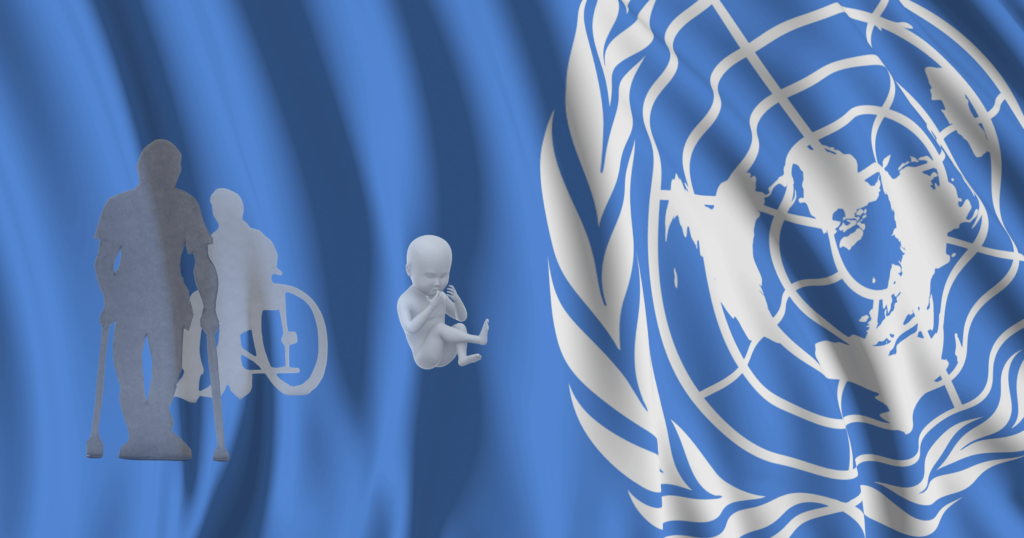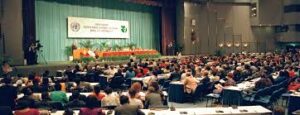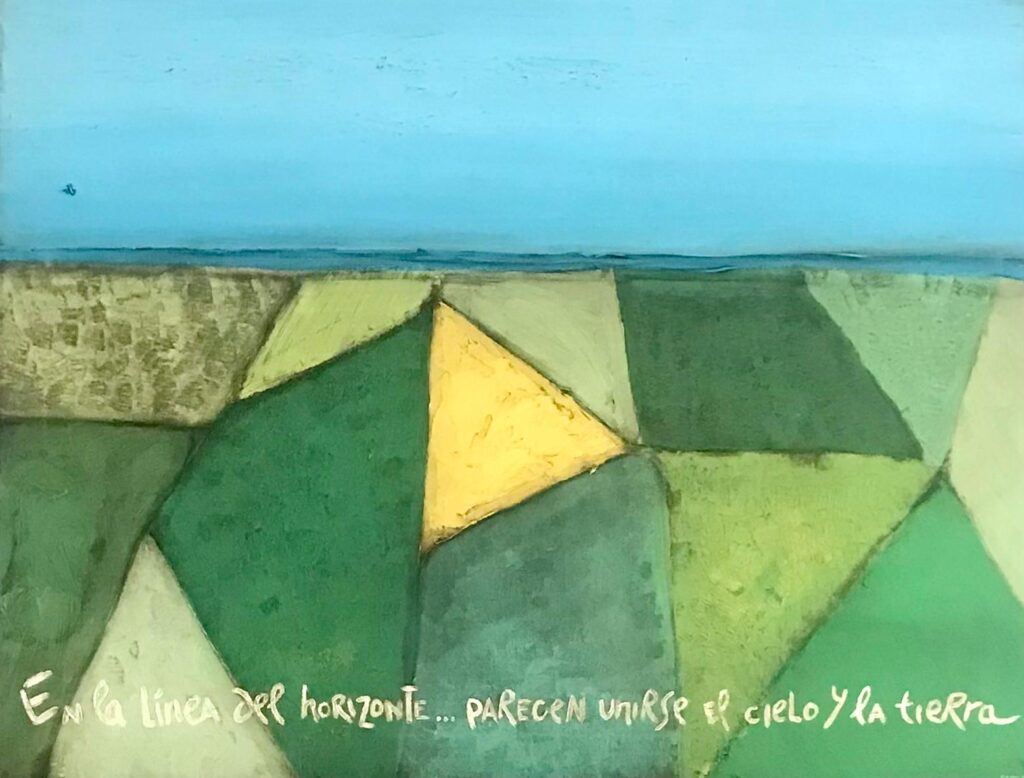A surprising UN report now denounces discriminatory abortion practices against people with disabilities
Between politics and ethics: The contradiction of the UN in defending the rights of people with disabilities

A recent report published this month by the Committee on the Rights of Persons with Disabilities of the United Nations (UN) includes in its section 16, point b, the following:
“The social perception that people with Down syndrome and other disabilities are less valuable than other people contributes to the high level of selective pregnancy interruptions after prenatal diagnosis of Down syndrome or other disabilities.”
This concern about social perception and the attention due to people with disabilities, specifically people with Down syndrome, inserted in the conclusions of a report related to the policies developed in Belgium in this regard, suppose a surprising defense of people with disabilities and a criticism of the high level of abortion practices as a consequence of prenatal or preimplantation genetic diagnoses used in a generalized way as eugenic practices.
These statements are surprising precisely because the UN has promoted for many years the extension of birth control policies, among which access to free abortion is prioritized.
An example of this is the Bucharest Conference, which already advertised that “a small family is a happy family” as the culmination of the World Population Year of 1974. At this conference, let us recall that, promoted by the United Nations, John D. Rockefeller III addressed the delegates stating that “population planning must be a fundamental part of any modern development programme as recognised and accepted by the leaders of nations”. It was at this Conference that the opposition of some South American countries and Algeria prevented attempts to approve a clearly eugenic world action plan on population.

Other conferences that took place during the 1990s took up the subject of population control again. Specifically, the Conference on Women in Beijing in 1995, where Hillary Clinton, a staunch defender of abortion, stated that it should be free until the last day of pregnancy.
The United Nations has also promoted, as stated in the Kissinger report, the promotion of the dissemination of contraceptive methods among the population and the dependence of development aid on the acceptance by national governments of policies related to contraception and abortion.
It was in the 1960s when the UN began to use the term “rights to sexual and reproductive health” as a semantic mask to provide legal coverage and justification for contraception and abortion.
The UN has also promoted international conferences organized by the United Nations Population Fund of neo-Malthusian inspiration, that is, with clear intentions of promoting the reduction of the supposed “world overpopulation.”
The use of the term safe abortion has been the tool to introduce the pro-abortion mentality into the agendas of all governments.
Rising figures in Spain
Without a doubt, and related to the promotion of abortion that the UN has been doing all these years, we now know that the figures for abortions registered in Spain in 2023 and which have just been published, are very close to the historical maximum reached in 2011: in 2023, 103,097 abortions were registered, 4.8% more than the previous year. The majority cause, 98,850 of them, was at the request of the woman, that is, free abortion carried out in the first 14 weeks. It should be remembered that since March 2023, the latest reform of the law that facilitated abortion for adolescents from the age of 16 without the consent of their parents, the obligation to guarantee this service in hospitals and the non-obligation to offer complementary information on alternatives and other circumstances related to the woman requesting the abortion has been in force.
Bioethical assessment
First, the use of the term safe abortion constitutes an intolerable manipulation of language.
Abortion is never safe because it constitutes a violent aggression against the pregnant woman and her child, causing the death of the latter and sequelae in the former, well evidenced in numerous studies.
On the other hand, the spread of the anti-natalist culture promoted by the UN has only promoted the acceptance of abortion as another contraceptive method that contributes to population control, an objective repeatedly stated by this organization. In this respect, the generalization of prenatal and preimplantation genetic diagnosis methods has become a powerful eugenic tool that ends the life of embryos and fetuses affected by any disability.
The now paradoxical statement by the United Nations emphasizing the value of people with disabilities and rejecting their discrimination, is in open contradiction with the policies that this organization has promoted in all areas since the 1970s.
Of course, those affected by Down syndrome or any other disability deserve that their personal dignity be recognized like any other person and that their life be respected. But not only them: the millions of abortions promoted in the world each year on healthy or sick embryos or fetuses as a consequence of the rejection of disability or simply pregnancy itself, constitute an intolerable attack on human dignity and rights, which the UN should protect and about which it now shows surprising concern.
Weak, dependent, sick or disabled people deserve care and respect for their dignity, inherent to every human being. The way in which a civilization behaves with these people is a good indicator of the moral status of its citizens and their level of decadence.
The defense of human rights, the first of which is the right to life, constitutes an imperative that the UN should promote as a priority, but not only in cases of disability, but as protection of the dignity and rights that every person deserves.
Julio Tudela – Bioethics Observatory – Life Sciences Institute – Catholic University of Valencia
 (EN)
(EN)
 (ES)
(ES)
 (IT)
(IT)





